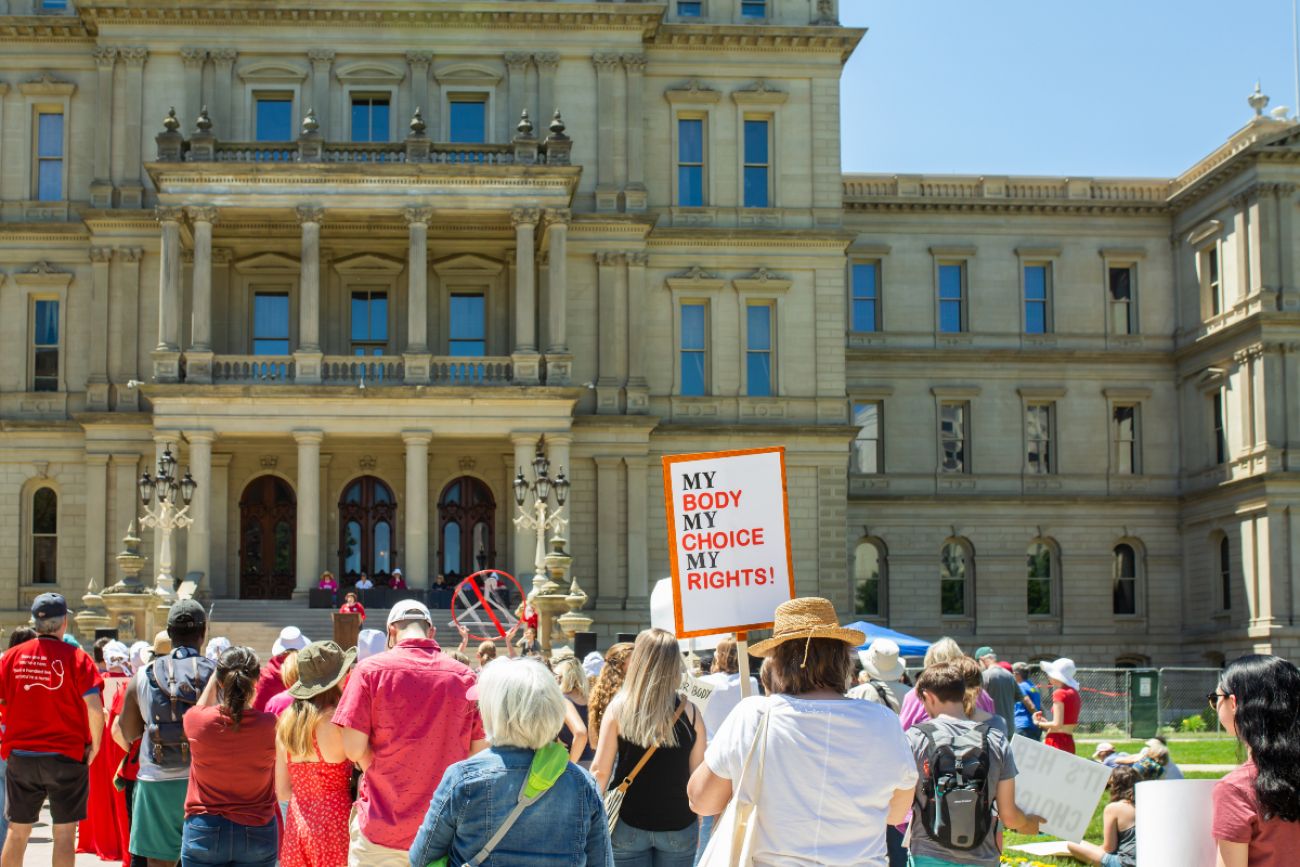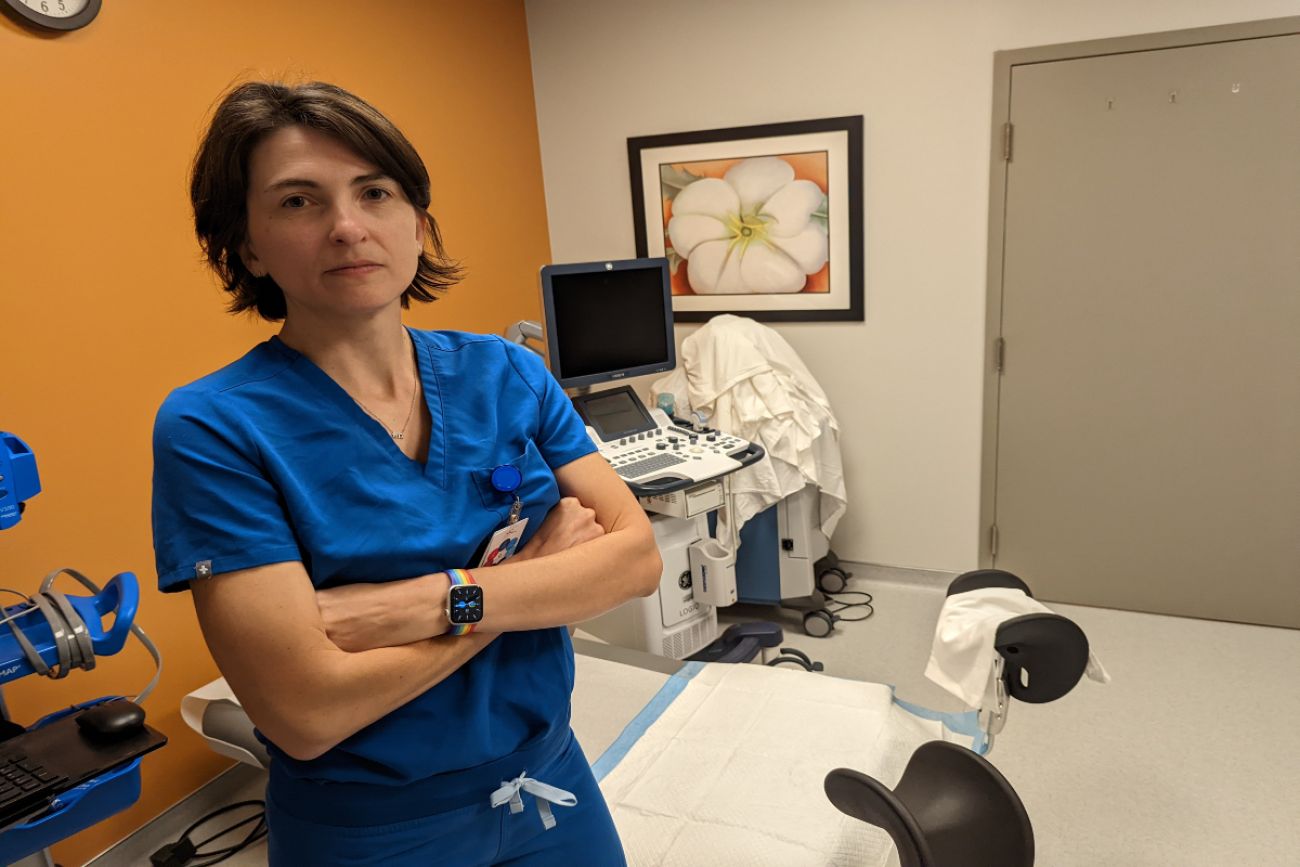Michigan Democrats move to allow Medicaid to cover abortions

- A set of bills expanding abortion access would leave intact the state’s requirement for parental consent.
- The bills are being introduced ten months after Michiganders voted to enshrine abortion as a constitutional right.
A set of proposed law changes would further increase access to abortion in Michigan, allowing tax dollars to pay for abortions, knocking down 24-hour waiting periods and ending so-called “trap laws” that set out physical requirements on abortion clinics.
The 11-bill package, known as the “Reproductive Health Act,” gets its first public hearing Thursday in Lansing in front of the House Health Policy Committee.
Introduced by two Democrats, the bills pit those who want to make abortion access easier and faster against those who say such efforts are part of a “blind fervor” by Planned Parenthood and could endanger Michigan women.
On Wednesday, Right to Life Michigan and a number of abortion opponents ratcheted up criticisms of the package, with one coalition calling it “hastily crafted.”
It “extends far beyond anything conceived of by any past administration,” according to the Michigan Coalition to Protect a Woman’s Right to Know, which includes Right to Life, the Michigan Catholic Conference, and Protect Life Michigan, which represents students who oppose abortion.
But supporters of the package counter that the bills reflect voters’ will, eliminating unnecessary barriers to abortion access. They note that voters enshrined access to abortion as a state constitutional right when they passed Prop 3 in November.
“Michiganders overwhelmingly supported Prop 3 and passed it in November, but on the ground, what patients experienced didn't change with that,” said Dr. Sarah Wallett, chief medical operating officer for Planned Parenthood of Michigan.

“Patients are still required to follow unnecessary, arbitrary things that do nothing to improve their health care because they’re written into state law — things like a mandatory waiting period, mandatory information from the state,” she told Bridge Michigan Wednesday. “All of those things need to go away for Michiganders to really experience the reproductive freedom that they were promised with the passage of Prop 3.”
Among the most contentious elements in the package is a provision that would allow Medicaid dollars to cover abortion, like some private insurers may.
There has been a state ban on Medicaid coverage of abortions since 1987, and, in a 1988 referendum, voters opted to keep the ban.
Opponents say allowing Medicaid to cover abortions violates the conscience of taxpayers who see abortion as the death of a baby.

“This is a matter of life and death, and it’s clear from polling that Michiganders and Americans have different beliefs on the morality of abortion,” said Christen Pollo, executive director of Protect Life Michigan, a student organization. "Using tax dollars to support something so controversial is problematic to many voters."
Sixteen other states allow their Medicaid dollars to fund abortion, according to KFF, a San Francisco-based health care research organization.
That’s despite a federal ban on using federal dollars for the procedures under the Hyde Amendment, which bars the use federal funds for abortion, except to save the life of the mother or in cases of incest or rape. While Medicaid programs are funded both by federal and state dollars, states can choose to use their own funds to cover the procedures for Medicaid beneficiaries.
Wallett, at Planned Parenthood, argued abortion is health care, and carving it out of insurance plans is unfair, putting abortion access out of reach for those who can’t afford it.
“Health care should be accessible to those with insurance whether they have Medicaid or private insurance,” she said. “Paying out of pocket for an abortion procedure harms those who are the most disadvantaged — the people who are working jobs, who are trying to make ends meet.”
There is hesitation about the Medicaid provision from a surprising source: some independent abortion providers.
Related stories:
- Michigan Democrats get to work on abortion restriction repeals
- Michigan abortions for out-of-state patients jumped 66 percent last year
- Abortion access expands with online prescriptions in Michigan. Some fear risks
Any Medicaid reimbursement should at least cover the actual cost in southeast Michigan, which is about $700, said Renee Chelian, founder of Northland Family Planning Centers, which operates three southeast Michigan clinics.
The bill would require the state to pay “reasonable rates that take account of the prevailing charges and reimbursement rates in the region.”
Chelian said Northland and other independent clinics support the package of bills, including the Medicaid provision — “as long as we have reimbursement rates that are sustainable for our businesses.”
One of the bills also would allow insurance companies to sell policies that treat abortions as a standard coverage area instead of an add-on service that requires purchasers to pay more in premium.
Federal decision, state reactions
The bill package is the latest abortion battle since June 2022, when the U.S. Supreme Court overturned the landmark Roe v Wade case that had legalized abortion for the past half century. The Supreme Court’s ruling sent the legal question back to the states, triggering a more than year-long scramble to establish state laws, with some states banning or limiting abortion and other states staking out continued access.
The hearing in front of the Michigan House Health Policy Committee is scheduled just ten months after Michigan voters passed Prop 3 as a reaction to the U.S. Supreme Court decision, five months after Democratic Gov. Gretchen Whitmer signed a bill that repealed the 1931 abortion ban, and four months after the now-Democrat-controlled legislature passed a law that banned employers from discriminating against workers for having abortions.
Notably, the bill package would not repeal parental consent requirement even though some abortion rights advocates have long sought to end it. That law bans abortions for minors without written consent of at least one parent or legal guardian.
Trying to do so was politically risky, state Rep. Laurie Pohutsky told Bridge Wednesday.
The Livonia Democrat, along with Sen. Sarah Anthony, D-Lansing, is spearheading the effort in the Democrat-led legislature.
“In an effort to just try and get as much of this work done … as quickly as possible, we're going to move forward with this package” without the parental consent component, Pohutsky said.
The parental consent issue likely will be revisited, but she declined to offer a timeline.
For now, the 11-bill package would:
- End the mandatory 24-hour waiting period for patients before abortions
- Repeal some structural requirements for abortion facilities that providers have called “trap laws.”
- Repeal the statewide ban on “partial-birth abortions” (a non-medical term that refers to abortions performed in late-term pregnancies)
- Repeal manslaughter penalties associated with abortions
- Reverse a ban on state funds dedicated to reproductive services
- Allow universities to refer students to abortion providers
Pohutsky and other democrats rolled out the package during a roundtable event last week, the first day they returned to the Capitol from summer break.
“Michigan decided that reproductive freedom, including abortion, should be a constitutional right,” Pohutsky said Wednesday. “If a right isn't accessible to everybody, it's not truly a right.”
The committee is expected to hear testimony about the bills, but not vote on them Thursday, she said.
Pollo, who said she plans on attending tomorrow’s hearing and submitting at least written testimony, said many of Protect Life’s members say they plan to skip college classes Thursday, if necessary, to attend the hearing.
State Rep. Josh Schriver, R-Oxford, took to social media Wednesday, calling on voters to voice their opposition to the package.
“I kind of see this as a slap in the face to the voters because this is taking (abortion access) to the nth degree,” he said.
See what new members are saying about why they donated to Bridge Michigan:
- “In order for this information to be accurate and unbiased it must be underwritten by its readers, not by special interests.” - Larry S.
- “Not many other media sources report on the topics Bridge does.” - Susan B.
- “Your journalism is outstanding and rare these days.” - Mark S.
If you want to ensure the future of nonpartisan, nonprofit Michigan journalism, please become a member today. You, too, will be asked why you donated and maybe we'll feature your quote next time!





